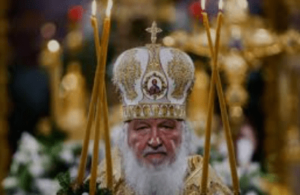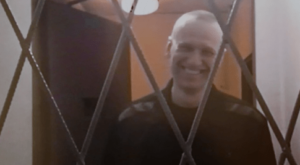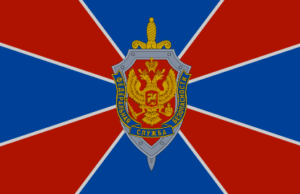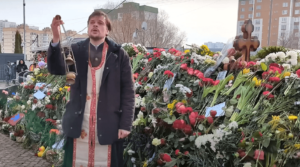Russian Orthodox Church Head suspends priest for presiding over Alexey Navalny’s memorial service
Dmitry Safronov, the Russian Orthodox priest who led the memorial service for the late Russian opposition leader Alexei Navalny back in March, has been suspended from his clerical duties for a period of three years.
The statement published on the Moscow Diocese of the Russian Orthodox Church website on Tuesday forbade priest Dmitry Safronov from carrying out blessing ceremonies and donning the church’s priestly cross and frock until 2027, but did not mention the reason for suspension.

The head of the Russian Orthodox Church, Patriarch Kirill, stated that priest Dmitry Safronov of the church of the Intercession of the Holy Virgin on Lyschikova Hill in Moscow is suspended from performing his clerical duties until 2027, and upon completion of suspension terms in 2027, his future in the clergy will be reassessed. However, he did not elaborate on the reason for Safronov’s suspension.
Safronov had held a memorial service for Navalny on March 26, which was attended by thousands of Navalny’s supporters and bereaved family and friends of the late opposition leader. Prior to the funeral, Safronov had publicly accused the state authorities of causing intentional delays in handing over the late politicians remains.

Alexey Navalny was one of the harshest critics and political rivals of Russia’s President Vladimir Putin, until his reported death on February 16 at 2:17 p.m. local time (0917 GMT), while serving incarceration at the IK-3 penal colony located in Kharp, Yamalo Nenets region, approximately 1,900 km (1200 miles) north-east of Moscow.
Navalny’s body remained in state custody for over nine days before the remains were handed over to Navalny’s 69-year-old mother, Lyudmila Navalny.
Russian opposition leader faced frequent assassination attempts
Alexey Navalny was one of the most celebrated opposition leaders in Russia, loved by the people and lauded for his fervent advocacy for Russia’s disregard for human rights violations within the country.
The late 47-year-old politician spent most of his time in recent years either in state prison or recovering from assassination attempts, most notably one in August 2020, when he was hospitalised in the Siberian city of Omsk after his drink was poisoned.
Soviet doctors who examined him reported “no trace” of any poisons indicating an assassination attempt; however, when he was airlifted to Charite Hospital in Berlin, Germany, German doctors found substantial evidence of a Soviet-era Novichok nerve agent and stated that Alexey Navalny was the victim of an active assassination attempt.

Later on, in December 2020, the Netherlands-based investigative website Bellingcat and Russian media outlet The Insider published a joint investigation report about Navalny’s poisoning, identifying a team of assassins from Russia’s security service agency, the FSB, stalking Navalny for several years, including intelligence officers and poison laboratory directors who acted on orders from the Kremlin.
Despite the clear evidence, Russia’s President Vladimir Putin refuted the claims and described the allegations at the time as “unsubstantiated.” He also accused Navalny of working with foreign intelligence agencies to undermine Russia’s sovereignty.
The Kremlin has claimed time and again that Navalny died due to “sudden death syndrome,” but by the previous attempts of failed assassinations, thousands across the country and the world believe that the late opposition leader succumbed to yet another assassination attempt carried out under political directives from Moscow.

A vague term for various cardiac symptoms that cause sudden cardiac arrest and death, “sudden death syndrome,” was mentioned in the deaths of as many as 50 Russian oligarchs between 2014 and 2024. Most of the influential individuals were reported to have committed suicide, sometimes alone, sometimes with their entire families.
These individuals often had close ties with the Kremlin, leading foreign analysts to speculate that the chain of mysterious deaths was a political silencing with orders from the highest echelons of Russia’s government.
The suspended Russian priest is the latest in the line of dictatorial suppression of dissent
The lack of reason for the suspension of priest Dmitry Safronov has once again sparked outrage over the Kremlin’s forceful suppression of dissent, by any means necessary.
According to unverified reports from an anonymous telegram channel in Russia, Safronov had also refused to recite the church’s war-themed “Prayer for the Victory of Holy Rus” despite strict directives from the Moscow Diocese due to his opposition to the current Russo-Ukrainian war.

With the imprisonment of thousands of dissenting citizens and activists since the beginning of the war in Ukraine, it can be said for certain that President Putin does not take criticism very well.
The recent suspension of Dmitry Safronov is yet another reminder of Russia’s stringent measures to silence dissent through any means necessary, irrespective of the criticism from home.












Comments 1